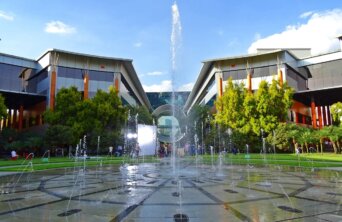- About
- Topics
- Picks
- Audio
- Story
- In-Depth
- Opinion
- News
- Donate
-
Signup for our newsletterOur Editors' Best Picks.Send
Read, Debate: Engage.

| topic: | Global Warming |
|---|---|
| located: | India |
| editor: | Bindu Gopal Rao |
A lower-than-normal rainfall courtesy of an El Nino effect has meant that most parts of the city of Bengaluru have remained parched this year. The problem is more severe towards the IT corridor of Whitefield, which already does not receive Cauvery water, and borewells drying up (6900 of 13900 having dried) have compounded issues.
As the city grapples with one of its most severe water shortages, the effects are being felt across the board. IT firms have issued work-from-home advisories, schools have had to declare holidays, and the demand for water tankers has skyrocketed, leading to a price surge, prompting the Karnataka Government to step in for regulation.
A report on 'Decaying Lakes of Bengaluru and Today's Irrational Decision Makers' grimly describes how land cover changes in the city have wiped out 98% of the wetlands, lakes, and greenery. The city's vanishing lakes have always been a point of discussion, and unfortunately, the water crisis has put the spotlight back on them.
To mitigate the crisis, the Bangalore Water Supply and Sewerage Board (BWSSB) has said that households will be allowed to use 40 lakh (4 million) litres of water per month, with penalties of a 10 per cent water reduction from subsequent months for violations.
The Government of Karnataka will also supply recycled water for construction-related purposes.
While simple solutions like using a tap aerator exist, the focus must be on rainwater harvesting systems and traditional wells. The latter is a particularly effective way to recharge groundwater and has a far-reaching impact.
While there is a movement to have a million wells in Bengaluru, there must be a more significant push.
The water crisis in Bengaluru is not an isolated incident but a harbinger of what could be a nationwide problem. The time for action is now, and a comprehensive approach is necessary to implement practical solutions and avert what could potentially be one of the most significant ecological challenges in the country.
Image by Bishnu Sarangi.
